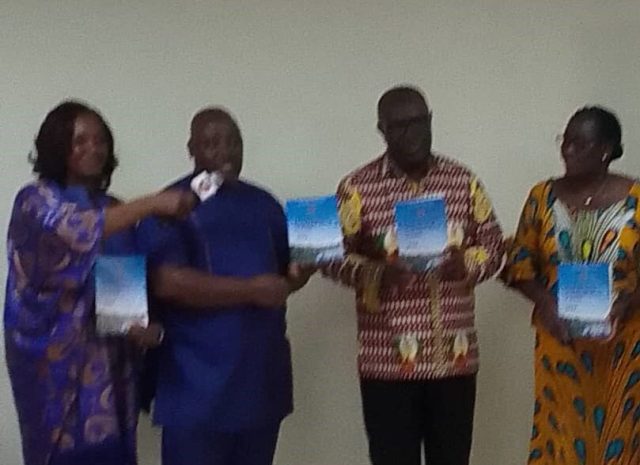By Konrad Kodjo DJAISI
The Fisheries sector is noted for occupational safety and health shortfalls, deplorable living and working conditions on fishing vessels and dwindling incomes. Forced Labour, modern day slavery, human trafficking also occurs in the sector.
The policy’s rationale, key objectives and strategic actions are based on the mission and values of trade unions, national policy and legal frameworks, as well as international development protocols and conventions.
These include target 7 of the Sustainable Development Goal 8, hence SDG 8.7, the decent work framework of the International Labour Organisation (ILO) and the national policy for management of the marine fisheries sector.
Director of Research at the Ministry of Fisheries and Aquaculture, Nii Adjei Brown read the keynote address on behalf of the sector Minister, Hawa Koomson and highlighted the importance of the fisheries sector to the economy, adding it employs 2.5 million people directly and indirectly and contributes 6.5 percent of GDP.
He noted that amidst the abundant marine resources, one cannot lose fact to the numerous challenges confronting the sector such as illegal, unreported and unregulated (IUU) fishing, light fishing affects the output of the sector to which the ministry has instituted remedial measures to address them.
However, the minister indicated that the exploitation of vulnerable workers in fisheries violates their human rights and also stains the reputation of the nation on the global stage. He expressed the hope that the policy will end their rampant occurrence and called on industry players to embrace it wholeheartedly.
Marine fishing in Ghana is classified into three subsectors: artisanal, semi-industrial and industrial trawl.
Apart from the economic and labour market significance, fish is the main source of protein in the country. Annual per capita consumption of fish is estimated at 25kg, making Ghana one of the highest fish dependent countries in Africa.
Among its many objectives, the policy seeks to promote employment and enterprise guarantee rights at work, extend social protection and advance social dialogue as well as, enable the realization of SDG 8, target 7 in the fisheries sector.
Secretary-General of the Trades Union Congress (TUC), Dr. Yaw Baah said trade unions need to take action to promote the rights and interest of fishers in the country. He notes that the policy provides the blueprint to guide trade union efforts towards ameliorating decent work deficits in fishing.


















